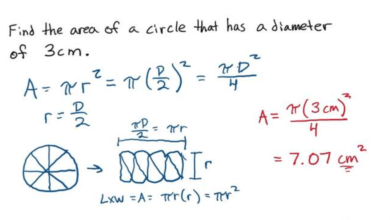Socratic Dialog: A Timeless Method for Deep Thinking

The Foundation of Critical Inquiry
The concept of socratic dialog has withstood the test of time as one of the most effective tools for intellectual exploration and truth-seeking. Rooted in the teachings of Socrates, the Greek philosopher from the 5th century BCE, this method involves a disciplined approach to questioning, where a person probes ideas through conversation. Rather than delivering answers, the focus is on guiding others to find insights through reflection and logical reasoning.
This method of communication isn’t just useful in philosophical debates—it applies to education, therapy, leadership, law, and even modern technology. In today’s world, where information flows rapidly and opinions are often based on shallow understanding, socratic dialog offers a way to slow down and think with clarity.
A Powerful Teaching Tool
In educational settings, the socratic dialog is often used to foster critical thinking. Teachers and professors who apply the method challenge their students to question assumptions rather than memorize information. This is especially common in subjects socratic dialog like philosophy, literature, and law.
For example, a literature teacher might ask, “What does justice mean in this novel?” The discussion may begin with simple answers but soon move into complex territory, as students analyze characters, motivations, and themes. Through this process, they not only understand the text better but also develop reasoning and communication skills.
Unlike traditional lectures, socratic dialog demands active participation. Students become co-creators of knowledge rather than passive receivers. They learn to listen, think, articulate, and adapt—skills essential in all areas of life.
See also: Security Risks of AI Face Swap Technology and How to Mitigate Them
Dialog in Therapy and Personal Growth
Socratic dialog is also widely used in modern psychological practices. Therapists, particularly those using Cognitive Behavioral Therapy (CBT), employ socratic questioning to help clients examine irrational thoughts and reframe negative beliefs. Rather than telling a client what to think, the therapist may ask:
- “What evidence supports this belief?”
- “What would you tell a friend who felt the same way?”
- “Are there other possible explanations?”
These questions, when asked carefully and respectfully, lead the person to recognize patterns in their thinking and make healthier, more rational choices. The goal is not to argue or persuade but to empower self-understanding.
In personal development coaching, the same principles apply. Coaches help clients clarify their goals, overcome limiting beliefs, and improve decision-making using guided inquiry. By practicing socratic dialog, individuals strengthen their confidence, emotional intelligence, and problem-solving abilities.
Socratic Dialog in Business and Leadership
Effective leaders often rely on asking the right questions rather than giving orders. This is where socratic dialog plays a vital role in organizations. Leaders who use inquiry-driven conversations encourage innovation, responsibility, and team alignment.
Rather than telling a team member, “Do this,” a leader might ask, “What do you think is the best solution?” This kind of questioning invites the person to take ownership of their ideas and actions. It also shows trust and respect for their judgment.
In group settings, socratic dialog helps teams explore options, weigh risks, and reach consensus. When people feel heard and engaged, their commitment to outcomes increases. Furthermore, the process helps uncover blind spots and challenges that may otherwise go unnoticed.
Online Learning and Digital Dialog
In the digital age, the concept of socratic dialog has entered virtual classrooms, forums, and artificial intelligence platforms. Online learning environments are increasingly using dialog-based formats to engage students. Interactive tools ask questions, provide hints, and lead learners through a thought process rather than simply delivering answers.
AI chatbots that simulate socratic dialog are being developed to help students with subjects like math, science, and philosophy. Instead of providing a direct solution, the bot may prompt users to recall prior knowledge, think critically, and attempt different approaches.
While machines cannot replicate the depth of human reasoning, they can support learning by encouraging habits of inquiry and persistence. In this way, socratic dialog is being reimagined for the modern era.
From Conflict to Understanding
Socratic dialog also has the potential to transform public discourse. In a time where disagreements often escalate into arguments, this method offers a framework for respectful, open-minded conversation. It teaches people to ask questions, listen without interrupting, and respond thoughtfully.
Imagine political debates or social discussions where the primary goal is not to defeat the opponent but to reach shared understanding. A citizen might ask, “What values underlie your viewpoint?” or “What would happen if everyone followed this policy?” Such questions lead to more productive conversations and a healthier democratic process.
Socratic dialog promotes humility—the understanding that our knowledge is incomplete and can be improved. When this mindset is shared by communities, workplaces, and nations, it fosters progress and reduces division.
Reviving a Lost Art
Socratic dialog is more than a technique—it’s a philosophy of learning and living. It reminds us that truth is discovered through exploration, not imposed from authority. It encourages us to view questions as opportunities rather than threats. And it teaches us that wisdom begins with the recognition of our own ignorance.
To bring this art back into everyday life, we can start with small steps:
- Ask one thoughtful question in every conversation
- Reflect before reacting to opposing views
- Replace assumptions with inquiry
- Be open to being wrong
Whether you are a teacher, parent, leader, student, or friend, integrating the principles of socratic dialog can deepen your relationships, sharpen your thinking, and improve your decisions.
Final Thoughts
The power of socratic dialog lies in its simplicity and depth. It doesn’t require special tools or degrees—just the courage to ask questions and the patience to explore answers. As we navigate an increasingly complex world, this ancient method offers a timeless path to clarity, connection, and growth.


